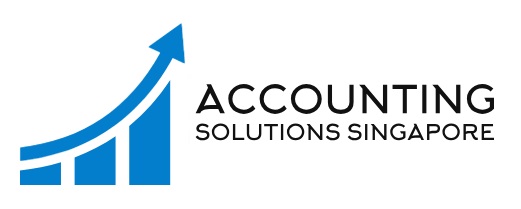
You may be aware that Singapore is among those few countries without minimum wage set though this has been frequently a subject for debate by some leaders.
The standard is 8 hours a day and a total of 40 hours per week.
Managing your payroll can be a stressful responsibility, especially your business expand.
Typically, for a monthly salary, wherein an itemized payslip is required to be provided by Singapore.
In Singapore, if you are currently working as a payroll outsourcing specialist, you will agree that payroll processing is never an easy job.
You have several things to consider, and it involves much administration. Yet, payroll outsourcing is essential for your growing business.
The task of a payroll specialist includes processing as well as reporting components of payroll to make sure that the Singapore company complies with the requirements for computing as well as disbursing salaries, payroll management is taken care with utmost care and accuracy.
How to ensure a successful payroll management
Payroll management covers not only the lists of employees and the exact amount that the company should be paying them.
It’s above beyond having an idea regarding personal income tax reporting as well as complying with the Singapore legal requirements.
If you have a growing business in Singapore, the guide below outlines all the things that you need to consider and be mindful about managing your payroll system:
- The salary comprises of basic pay as well as allowances which may include food, travelling or housing allowances. Typically, it refers to the earnings paid intended for the job scope stated in the employees’ employment contract. Besides, it excludes other costs incurred while working and retrenchment benefits.
- You should receive a salary payment at least once in a month, or if you choose a shorter payment interval, that’s also possible. Employers must make payment in seven days following the salary period end. Non-payment is an offence.
- From 1 April 2016, the Employment Act in Singapore requires all employers to issue itemized payslips to the employees. The payslip must include the following details: full name of employer & employee, payment date, basic salary, salary period, allowances, additional payment, deductions made, overtime pay and net salary paid in total. Non- compliance will result in a fine.
- Employers must keep employment records. All the employees’ full employment and their salary records must be in the file, while for those ex-employees, the company must keep their documents for a year after they leave.
- For uncompleted work months, employers must pay employees the pro-rated part of their salary for the number of days worked.
- Employers must calculate the correct overtime pay, and it should be not less than 1.5 times the basic rate for an hour. The company should make this payment within 14 days following the last day of salary.
- All company must adhere to the statutory reporting requirements. From Year of Assessment 2020 (YA 2020 refers to income earned from 1 January 2019 to 31 December 2019), employers with seven or more employees who have received the electronic filing notice for employment income must submit their employee’s income information to IRAS via myTax Portal (electronically). Employers should commence sending Employment Income Records from 6 January, and the due date is on 1 March every year.
Singapore companies must strictly comply with the mandatory levies, the CPF contribution, as well as other statutory requirements. Apart from the CPF (Central Provident Fund) contributions, all employers must make the monthly contributions listed below:
- Skill Development Levy, as known as SDL, CPF Board collects this on behalf of SSG (SkillsFuture Singapore Agency);
- Self-Help Groups (SHGs) contributions – Ethnic Funds that have a goal which is to help those less privileged in their respective ethnic communities like Chinese Development Assistance Council (CDAC) Fund, Eurasian Community Fund (ECF), Singapore Indian Development Association (SINDA), and Mosque Building and Mendaki Fund (MBMF);
- For foreigner employees, employees must pay monthly levies.
Payroll management mistakes to avoid
Success in payroll management does not only involves accurate processing. It also requires proper maintenance, timely disbursement, as well as strict compliance with regulations.
As such, many Singapore small and medium companies use cloud payroll software to streamline their payroll process and encourage their employees to use self-service HR portal.
Do read on to understand the common mistakes that you must avoid.
Keep updated and accurate employee details
Employers must observe it at all times. Keeping an updated employee record is crucial for providing accurate business data processing.
A single mistake, such as not being able to update on the database the wrong account number for an employee, can lead to costly mistakes, time-consuming processing, and sooner it will confuse the employee.
Untrained payroll staffs and human errors
Some employers tend not to invest in outsourcing payroll management for them to save expenses.
Unfortunately, the human element that is involved in the payroll processing system (or whatever management system) most of the time results in costly errors like miscomputation as well as non-standardized procedures for computing.
Irregular or delayed salary payment schedule
For employees to be happy and stay with your business, you must ensure to keep their morale. You must build the spirit as to why they love their job and the business.
With that, you need to ensure efficient payroll management, can meet deadlines, and able to carry out correct calculations.
Failure To maintain and keep records of employee payroll
It is part of the company’s responsibility to provide relevant employee forms, and employee records whenever needed. Especially when there are disputes with regards to payment or review from regulatory bodies.
Employment-related tax forms in Singapore, such as Form IR8A and Appendix 8A, Form IR8S, or Form Appendix 8B, must be submitted to IRAS before 1 March yearly.
Compromising confidential and personal information of an employee
Considered as confidential are the salary of the employee, employment benefits, and all other personal data of the employees.
For in-house staff for payroll processing, there is a risk for the employee information to be shared and be accessible by unpleasant parties.
The Big Picture
For you to have successful payroll management, an employer must employ accurate processing for salaries and payouts, proper system maintenance, and giving salary on time.
As your business grows bigger in Singapore, the headcount and profile will also increase, and by that time, you might find it challenging to handle it internally. Processing and managing your payroll process will require a lot of time, resources and effort.
Our team provide hassle-free and cost-effective payroll management services for your business using cloud payroll software.
Have it a try and contact our cloud payroll team for more details.
